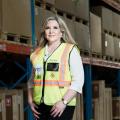As part of the Customs Modernisation Programme, and in line with its Vision 24 to build a smart, modern Sars, the Customs Cadet Programme was introduced to recruit and place successful candidates as customs officers of the future.
Trade has welcomed the initiative, mainly due to an exodus of experienced officers over the past few years. It therefore bodes well for customs in the future as there will be a continuous feeder system of trained personnel to ensure customs can fulfil its mandate without disruption.
There is, for good reason, scant information available on the training programme itself. We know that training takes place over 12 months, and the cadets will be trained on the various fundamentals of customs.
The first area of concern is obviously the question of how much can a candidate learn in 12 months before becoming a fully integrated officer? Even a documentary inspector is required to have sufficient knowledge of tariff, value, origin, Incoterms etc.
In the freight clearing and forwarding industry, it is common knowledge that when new officers are introduced, there is an increase in queries and physical inspections, causing delays and additional costs. This is understandable, as being a frontline officer is far different from what was experienced during training, and it takes many years to become knowledgeable enough to identify where there is no risk to the fiscus and where there is intentional non-compliance.
The idea of private sector assistance to train customs officers is not new; it has been discussed many times through various forums, and over several years. The general idea has always been to invite trainees to a private sector company to see, firsthand, the operational and financial impact a customs intervention has on a business. They would be able to understand how a query, or a stopped consignment, is dealt with by a clearing agent, how an agent interacts with the importer/cargo owner, how the supply chain is affected, and, most importantly, understand the implications of an incorrect decision. Similarly, new employees entering the freight industry should be invited to attend training by customs. Not to learn how to avoid compliance, but to understand how a customs officer receives and deals with a case, what tools are available for an officer to make a decision, and how that decision is validated before being issued to the trader.
There are obvious benefits to customs and the private sector learning from each other and being trained using the same principles. A higher level of awareness would be introduced, and understanding how things work would inevitably result in fewer confrontations. The global supply chain is an ever-changing environment within which to work, and formal training for those who play key roles is vital.
Customs and the private sector focus on trade facilitation, so imagine if a customs officer and an entry clerk were both trained by the same person on how to use the Harmonized System Explanatory Notes? A customs officer would then understand why the entry clerk used a tariff heading for a commodity, rather than requesting a different heading based on a higher duty due to lack of tariff knowledge, ultimately resulting in another Tariff Determination application. This would indeed be trade facilitation at its best.









